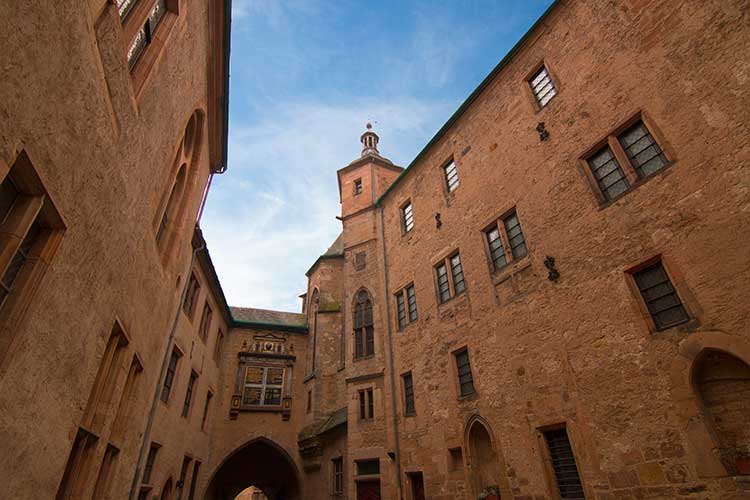The Other Martin
“If you immediately condemn anyone who doesn’t quite believe the same as you do … pray tell, [who] can you still consider a brother?”—Martin Bucer

Reflections By David Peters, producer of This Changed Everything
In the fall of 2013 I was asked to join a production team to create a 3-episode documentary on the 500th anniversary of the Reformation. I was ecstatic. I’m not a theologian, but in an era of rapid change in the church, I find we have much to learn from the historic church.
During the editing of the film, the countless hours of interviews with scholars and theologians provided me deep insight into the life and times of the men and women whose thoughts and actions altered the entire trajectory of the church – especially Martin Luther. I was somewhat familiar with his theology but had no idea how much Luther loved to pull the chain of those with whom he engaged. His knack for using the profane to make his point was on par with his theological brilliance. I had some laugh-out-loud moments when I learned how he creatively used descriptions of bodily functions to call out his opponents and their theology. He knew little of subtlety and nuance. He exhibited all-out-like-it-or-not-in-your-face engagement. Imagine how he could have lit up a 16th century Twitter account!

Marburg Castle.
The first episode of our documentary, This Changed Everything: 500 Years of the Protestant Reformation, ended with a glimpse into the turmoil of the Marburg Colloquy of 1529. My wife and I were able to film at “Marburger Schloss” in Marburg, Germany where this famous gathering took place. This magnificent castle sits at the highest point in the city, Its grandeur appropriately underscoring the importance of what took place there almost 500 years before.
In my mind, this event was a calibrating factor, affecting the whole trajectory of the Protestant Reformation – in a very negative way.
So what did happen there? Allow me to set the stage:
By the 1520s, new theological ideas were sweeping across Western Europe, creating a strange blend of chaos and insecurity, along with fresh hope, for the Church. Wittenberg, Germany could be considered the headquarters of the reformed movement that originated with Martin Luther. The Swiss reformers hailed from Zurich, Switzerland and sat under the sharp theological wit of Huldrych Zwingli. But there was a third, less familiar movement of the Reformation that was forming in southern Germany under the leadership of four Strasbourg ministers, – one of whom was Martin Bucer (the other Martin, as I now call him).
While reformation was happening theologically, something else was brewing politically. At that time, Charles V was the ruler of the Holy Roman Empire and was trying his best to keep the empire united under the spiritual head of the Pope. As war with the French loomed, Charles need the support of all his subjects and therefore tolerated the raging reform movements. But most believed Charles V could use force at any time to quell this theological “epidemic” threatening the “true Church.”
Enter Philip of Hesse (Hesse is a city in central Germany), an astute German political leader partial to the protestant reformers. He knew that only a unified Protestant movement could survive against a threat from Charles V. It was no secret that Luther and Zwingli were divided over the exact nature of the Eucharist. Luther claimed Christ was actually present in the elements, while Zwingli was sure the elements were a means for remembrance only.
Aware of this divide, Philip of Hesse called for a colloquy so the principal players could come together and settle their differences; agree to disagree, as it were. About 60 guests attended, including ten key leaders from the reformation movement. With all eyes on Luther and Zwingli, Philip of Hesse called the colloquy to order. He carefully advised both parties to come together and “settle the dispute over the Lord’s Supper … in a spirit of moderation.” Yeah, right!

Marburg Castle up close.
Luther, his mind fixed on what he believed, replied, “Noble Prince, undoubtedly this colloquy is well intentioned … although I have no intention of changing my mind, which is firmly made up.” With this, he took a piece of chalk and wrote on his table top, “This is my Body.” Zwingli shot back with quotes from the book of John demonstrating how often Jesus spoke in what was obvious metaphor. “I am the Vine … I am the door.” There is no transcript of this debate, but evidently the two interjected insults and apologies throughout the tense verbal exchange.
Finally Luther could take it no more and let loose his showstopper, declaring, "I would rather drink blood with the Pope than mere wine with the Swiss!” He would not back down, and neither would Zwingli.
There were fourteen other points they agreed upon easily, but on the fifteenth, the exact nature of the Eucharist, they found no common ground. During the final hours of the Luther/Zwingli stalemate, the other Martin (Bucer) was asked to mediate. It was known that Bucer was open to some sort of compromise, but he was unable to broker any that day. Martin L. rebuffed Martin B, whom he referred to as a chatterbox. “Your spirit and our spirit do not coincide. On the contrary, it is obvious that we do not have one and the same spirit.”
So in the end, Luther and Zwingli made it an all-or-nothing proposition, parting without so much as a handshake. But the other Martin refused to give up. In the weeks following the Colloquy, Bucer called for unity even in the midst of disagreement. He wrote, “If you immediately condemn anyone who doesn’t quite believe the same as you do as forsaken by Christ’s Spirit, and consider anyone to be an enemy of truth who holds something false to be true, who, pray tell, can you still consider a brother? I for one have never met two people who believed exactly the same thing. This holds true in theology as well.”
But few listened. This impasse set the stage for countless schisms and factions that would mar the church for centuries to come. The early church started as a fresh movement of disciples following the Way of Jesus, but developed into a coded, religious system designed not to exclude pagans, but rather Christians who held beliefs outside the accepted norms.
As we sit on this side of church history - some 30,000 denominations later – the wisdom of Martin B. can’t be any more spot on. The divisions caused by an all-or-nothing form of Christian unity are painfully evident.
But I see hope on the horizon. There is fresh movement as the church rediscovers a faith not found in a system of beliefs, but revealed in a way of living rooted in love of God and love of neighbor.
We don’t have to agree on every theological nuance to serve a hurting world.
As I reflect on this 500th anniversary year of the Reformation, I hope we can all take account of ourselves and reflect on the sage, reconciling words of the “chatterbox” mediator, Martin Bucer – the other Martin.
Reflections By David Peters, producer of This Changed Everything and founder of Global Story 2 Films.
(Join us each Thursday for a fresh look at a quote from the Reformation era! Sign up via our e-newsletter (in the box at the right) or through our RSS feed (above), or follow us on Facebook for the next year as we celebrate 500 years of Reformation.)



